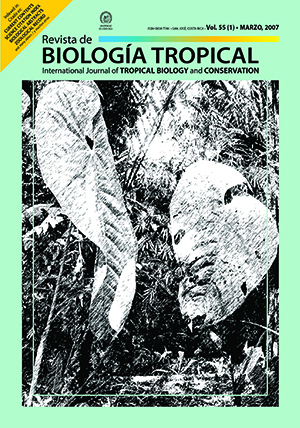Abstract
Scarabaeinae are sensitive to structural habitat changes caused by disturbance. We compared copronecrophagous beetle (Scarabaeinae) community structure in three differently managed zones within an agroecosystem of the northern Yucatan Peninsula, Mexico. We placed dung and carrion traps once a month from June 2004 through May 2005. The beetle community included 17 species from the genera Canthon, Canthidium, Deltochilum, Pseudocanthon, Malagoniella, Onthophagus, Phanaeus, Copris, Uroxys, Sisyphus and Ateuchus. The secondary vegetation had a higher beetle diversity than the other two zones. Species richness was highest in the Brosimum alicastrum plantation. The pasture had the lowest species diversity and richness, but exhibited the highest abundance of Scarabaeinae in the dry season. The two zones with extensive tree cover were the most diverse. Roller beetles were dominant over burrower species and small-sized species outnumbered large species. Our data show two important issues: beetle species in the pasture extended their activity to the beginning of the dry season, while abundances dropped in the other, unirrigated zones; and the possibility that the Scarabaeinae living in neotropical forests are opportunistic saprophages and have specialized habits for resources other than dung. The B. alicastrum plantation is beneficial to the entire ranch production system because it functions as a dispersion and development area for stenotopic species limited to tree cover.##plugins.facebook.comentarios##

This work is licensed under a Creative Commons Attribution 4.0 International License.
Copyright (c) 2007 Revista de Biología Tropical






